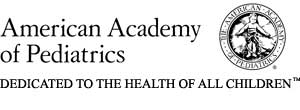

January 6, 2004 — In a new policy statement, "Soft Drinks in Schools," the American Academy of Pediatrics (AAP) recommends that school districts should consider restricting the sale of soft drinks to safeguard against health problems that result from overconsumption.
The policy points out that sweetened drinks constitute the primary source of added sugar in the daily diet of children, and that each 12-ounce serving of a carbonated, sweetened soft drink contains the equivalent of 10 teaspoons of sugar. Sugared soft drink consumption has been associated with increased risk of overweight and obesity, currently the most common medical condition of childhood. Additional health problems associated with high intake of sweetened drinks are dental cavities and potential enamel erosion.
According to the policy, between 56 percent and 85 percent of school-age children consume at least one soft drink daily. As soft drink consumption increases, milk consumption decreases, and milk is the principal source of calcium in the typical American diet. With soft drinks and fruit drinks being sold in vending machines, in school stores and at school sporting events, their availability is ubiquitous. While soft drink sales can be a substantial source of income for school districts, nutritious alternatives such as water, real fruit juices and low-fat milks are available for vending, and can help preserve school revenues.
The policy recommends that pediatricians work to eliminate sweetened soft drinks in schools. This entails educating school authorities, patients and parents about the health ramifications of soft drink consumption. The statement also recommends that:
As part of the effort to reduce consumption of soft drinks in schools, the policy recommends that vending machines not be placed within the cafeteria space where lunch is sold, and that soft drinks not be sold as part of, or in competition with, the school lunch program.
The recommendations in this statement do not indicate an exclusive course of treatment or serve as a standard of medical care. Variations, taking into account individual circumstances, may be appropriate.